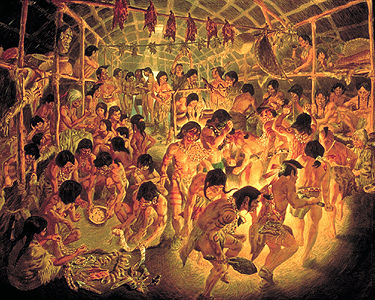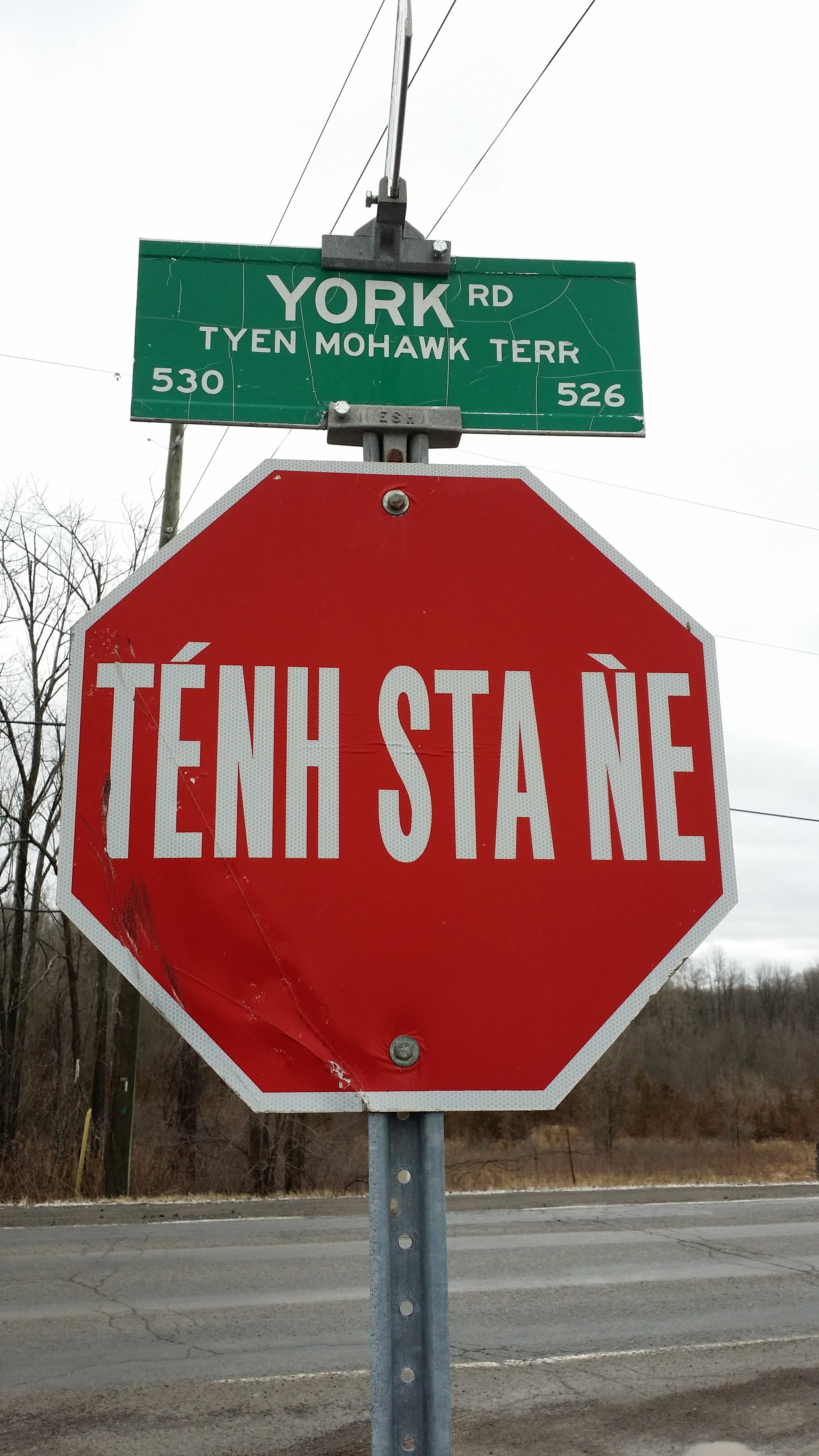Billy Two Rivers (Kaientaronkwen), political leader, professional wrestler, actor, activist (born 5 May 1935 in Kahnawá:ke, QC; died 12 February 2023 in Kahnawá:ke, QC). Two Rivers’ Kanyen’kehà:ka (Mohawk) name was Kaientaronkwen. He was from the Kahnawá:ke Mohawk Territory, which is on the St. Lawrence River’s south shore, south of Montreal. While he learned English in school, his first language was Kanien'kéha (Mohawk).
Wrestling
Carl Donald Bell was a professional wrestler from Kahnawá:ke who competed under the name Chief Don Eagle. He was home in Kahnawá:ke, recovering from an injury, when he met the 15-year-old Two Rivers. Bell became his legal guardian and mentored him as a wrestler.
In February 1953, Bell arranged Two Rivers’ professional wrestling debut in Detroit. Two Rivers wore a long, feathered headdress into the ring. He wore beads, feathers and more from many Indigenous nations as an ambassador for all Indigenous Peoples. His strength, skill, unique presence and approach to entering the ring by vaulting over the ropes bolstered his popularity. He toured the United States, Europe, North Africa, Cuba, India and Japan. He was particularly popular during a six-year stay in England.
Over the course of his 24-year career, Two Rivers won the Montreal World Heavyweight Championship and the International Heavyweight Championship. Additionally, he and George Becker won the National Wrestling Alliance Mid-Atlantic Southern Tag Team Championship. He left wrestling in 1977. However, he returned to win four matches in 1981.
Political Leadership
In 1978, Billy Two Rivers was elected to the Mohawk Council of Kahnawà:ke. In this position, he addressed important local and national issues for 20 years. Council spokesperson Joe Delaronde later observed, “He always knew how to show Kahnawà:ke in its best light. He was a staunch defender of our positions."

Two Rivers was passionate about the retention of the Kanien’kéha language. He spoke Kanien’kéha at council meetings and translated for those who did not understand. Two Rivers served on the Language and Cultural Center's Elders Advisory Group and appeared on radio programs speaking Kanien’kéha and promoting its teaching.
Constitution
In 1980, Prime Minister Pierre Trudeau began a political process to patriate the Canadian Constitution (see Constitution Act, 1982) from Britain and add a Charter of Rights and Freedoms. A Canada-wide movement of Indigenous leaders failed to persuade Trudeau to include Indigenous Rights in the new constitution. Two Rivers was part of an Indigenous delegation that travelled to Europe, soliciting support for their position. In London, he and others met with members of the House of Lords. Ultimately, the work of many Indigenous organizations and leaders resulted in the addition of section 35 that constitutionally recognizes and affirms Indigenous Rights.
Kanesatake Resistance
The Kanesatake Resistance (Oka Crisis) was a 78-day resistance against plans to build a golf course and townhouses on sacred burial grounds near the community of Kanesatake. On 11 July 1990, Kahnawà:ke protesters blocked the Mercier Bridge to support the Kanesatake Resistance. They were confronted by the Sûréte du Québec and then the Canadian Army.
Throughout the crisis, Grand Chief Joseph Norton led negotiations with Billy Two Rivers as his trusted advisor. Two Rivers worked in Ottawa and Kahnawá:ke, always ensuring that Kanyen’kehà:ka (Mohawk) leaders were afforded time to withdraw, reflect, consult and then speak with a unified voice. He played a significant role in arranging the compromise that ended the 78-day resistance on 26 September.
Advocacy
Billy Two Rivers remained an advocate for Indigenous Peoples after leaving the Mohawk Council of Kahnawà:ke in 1998. He acted as a policy advisor for the council and for the Assembly of First Nations.
Two Rivers criticized the portrayal of Indigenous Peoples in movies and television and called Hollywood, “a propaganda machine which justifies the seizing of our land under the guise of patriotism.” Partly to address the problem, he appeared in several movies and television shows including Bolt, Mohawk Girls, Pocahontas: The Legend, Taking Lives and Black Robe.

In 2019, a ceremony commemorated the 20th anniversary of the law that established Kanien'kéha as Kahnawà:ke’s official language. Two Rivers was among 38 Elders celebrated for their roles in bringing the language back to the community.
Death
Billy Two Rivers suffered from a long illness and eventually moved to the Kateri Memorial Hospital Centre in Kahnawà:ke, where he died on 12 February 2023. He was 87. He was mourned across Canada and by his wife Pauline, 3 children and 12 grandchildren.

 Share on Facebook
Share on Facebook Share on X
Share on X Share by Email
Share by Email Share on Google Classroom
Share on Google Classroom



